
News


Therapies administered via vascular access catheters are a mainstay of both acute and chronic medical treatment. In fact when all types of vascular catheters are combined, the category may well represent the largest type of invasive device used in healthcare. However their ubiquitous presence, ironically, makes it very difficult to measure with any degree of statistical precision their associated device utilization rates. The use of peripheral catheters (PIVs), for example, is so widespread in the United States that their use is obscured among other procedure codes, rather being coded separately, and recorded uniquely only in individual patient records. Aggregate data is absent in any administrative datasets. In general the frequency of catheter use must be inferred from the number of units sold by their various manufacturers. Today, this number reportedly exceeds 300 million but is at best an estimate.

If you have ever watched a fibrin sheath progress to a thrombus on the surface of a catheter -- a process that initiates instantly upon entry into the bloodstream and proceeds quickly, often in just minutes -- you will understand why the presence of contaminating bacteria on the surface of a catheter is something to be rigorously avoided. The rapidly forming fibrin sheath encases such surface bacteria, both shielding them and facilitating biofilm formation.




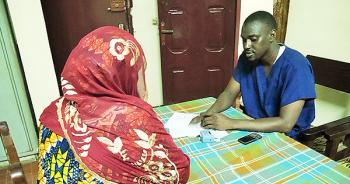
Dr. Diallo Thierno Souleymane, a doctor in Conakry, Guinea, recalls the day he received a phone call that changed his life. He had tested positive for Ebola. After surviving the disease and emerging from the Ebola treatment center, Souleymane was frightened to return to work and feared being stigmatized. He has since returned and advises other survivors to "have the courage to return to work and support the Ebola response."
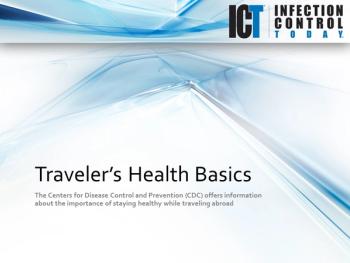



Infection Control Today spoke with Ruth Carrico, PhD, FSHEA, RN, CIC, regarding some of the most significant infection prevention-related issues in healthcare laundry department.




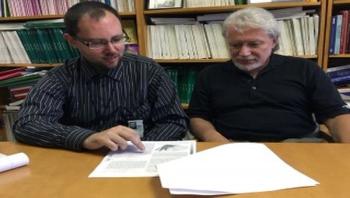
Warring armies use a variety of tactics as they struggle to gain the upper hand. Among their tricks is to attack with a decoy force that occupies the defenders while an unseen force launches a separate attack that the defenders fail to notice. A study published earlier this month in the journal Proceedings of the National Academy of Sciences suggests that the hepatitis C virus (HCV) may employ similar tactics to distract the body's natural defenses. After infecting patients, hepatitis C evolves many variants, among them an "altruistic" group of viral particles that appears to sacrifice itself to protect other mutants from the body's immune system.
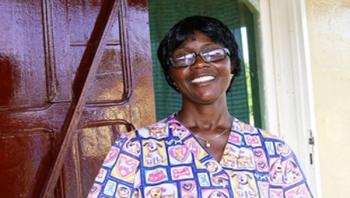
Barbara Bono began working at Elwa hospital in Monrovia, Liberia just as word began to spread about Ebola. Although staff did their best to learn about the new disease and how to protect themselves, reality was very different from the theory. One by one staff fell sick but Bono continued to come to work, until she, too was infected with Ebola while caring for a man who denied his symptoms for fear of being sent to an Ebola treatment unit.
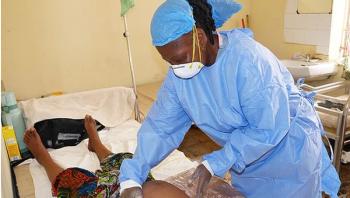
Before the Ebola virus arrived in Freetown, Sierra Leone, hospital nurse Adiatu Pujeh and her colleagues at the King Harman Hospital thought malaria was the most challenging disease they faced. But Ebola, which arrived in their midst last September, infecting Pujeh and killing many of her colleagues, changed all that.
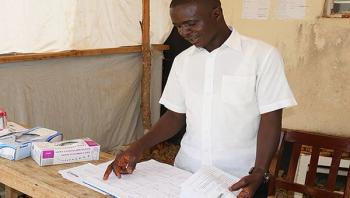
Mohamed Sesay was once part of an eight-person team of laboratory technicians trained to test for Ebola virus. But as the outbreak exploded and more and more samples arrived, his team was overwhelmed. One by one his colleagues sickened and died. He too eventually fell ill but survived, and is the only member of his team left to tell the tale.





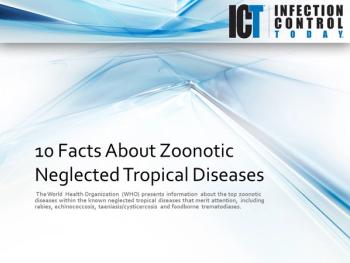
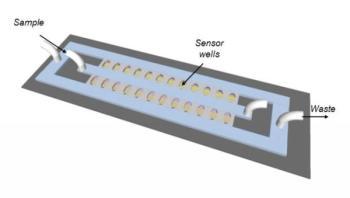
Tests for antibiotic resistance can take up to three days to come back from the lab, hindering doctors' ability to treat bacterial infections quickly. Now, researcher Justin Besant and his team at the University of Toronto have designed a small and simple chip to test for antibiotic resistance in just one hour, giving doctors a shot at picking the most effective antibiotic to treat potentially deadly infections. Their work was published this week in the international journal Lab on a Chip

